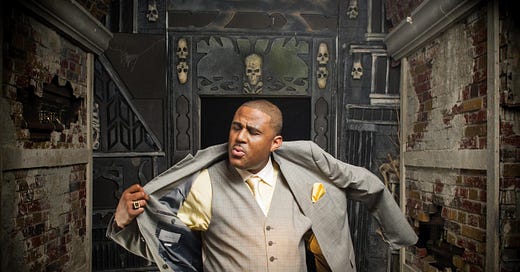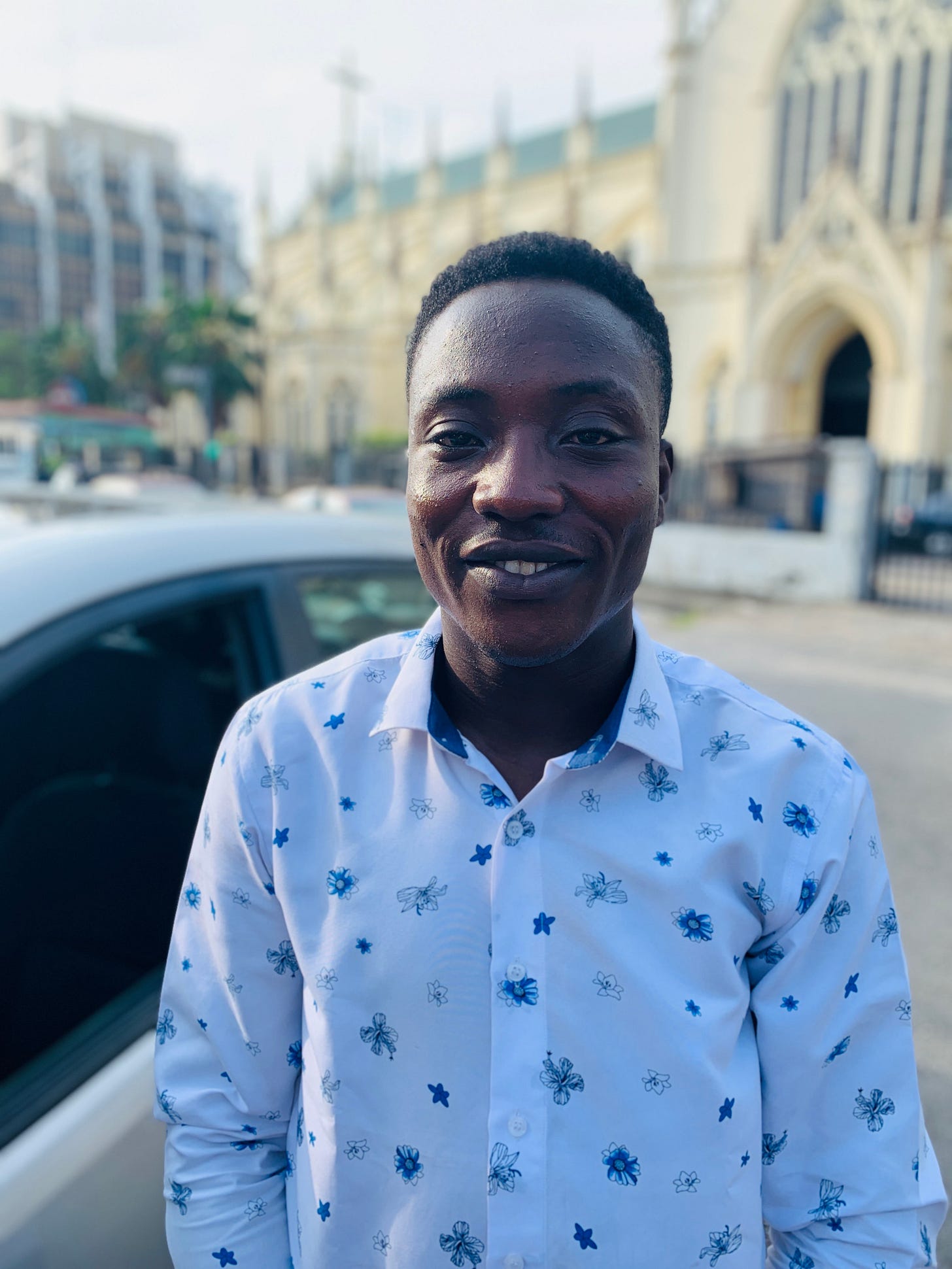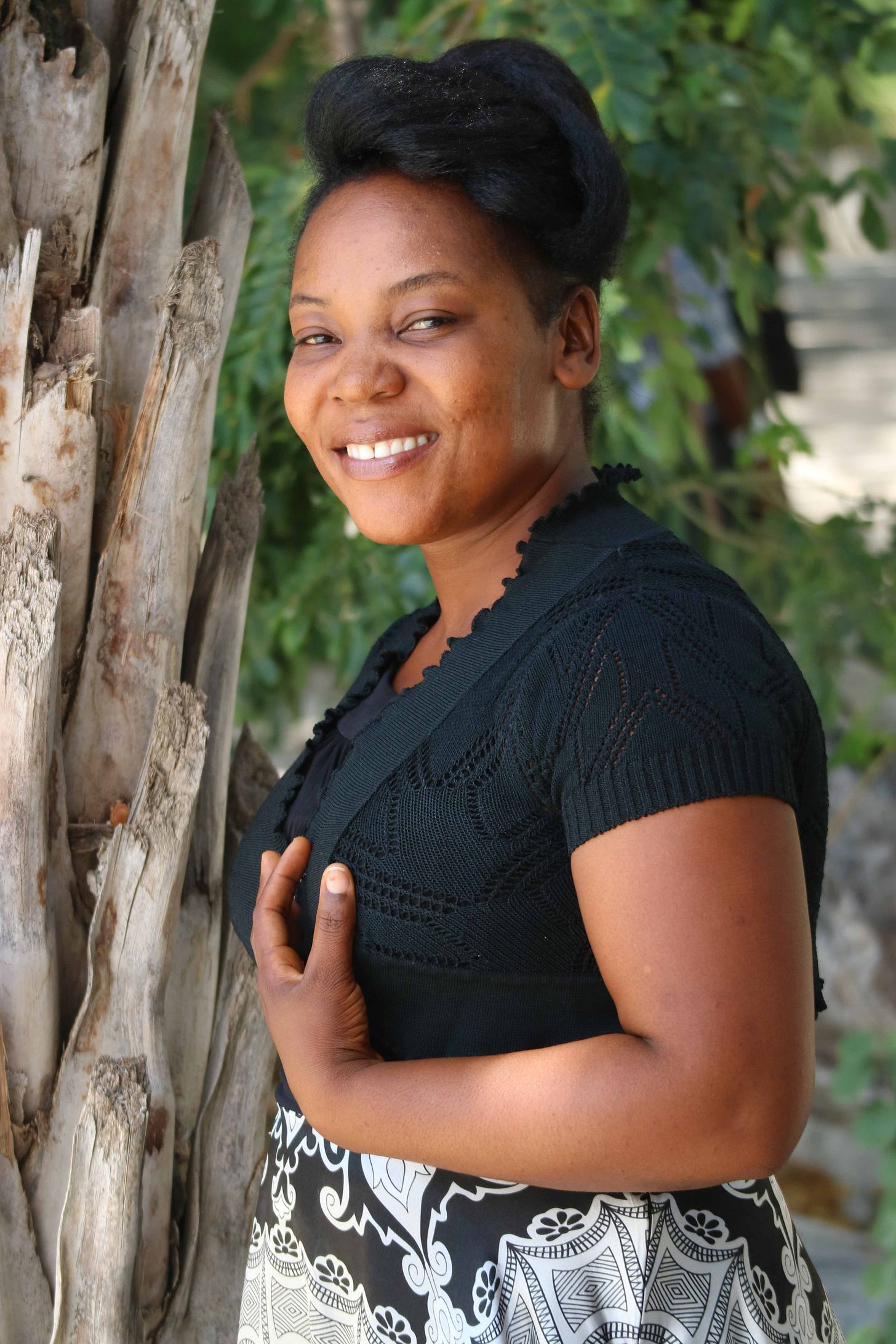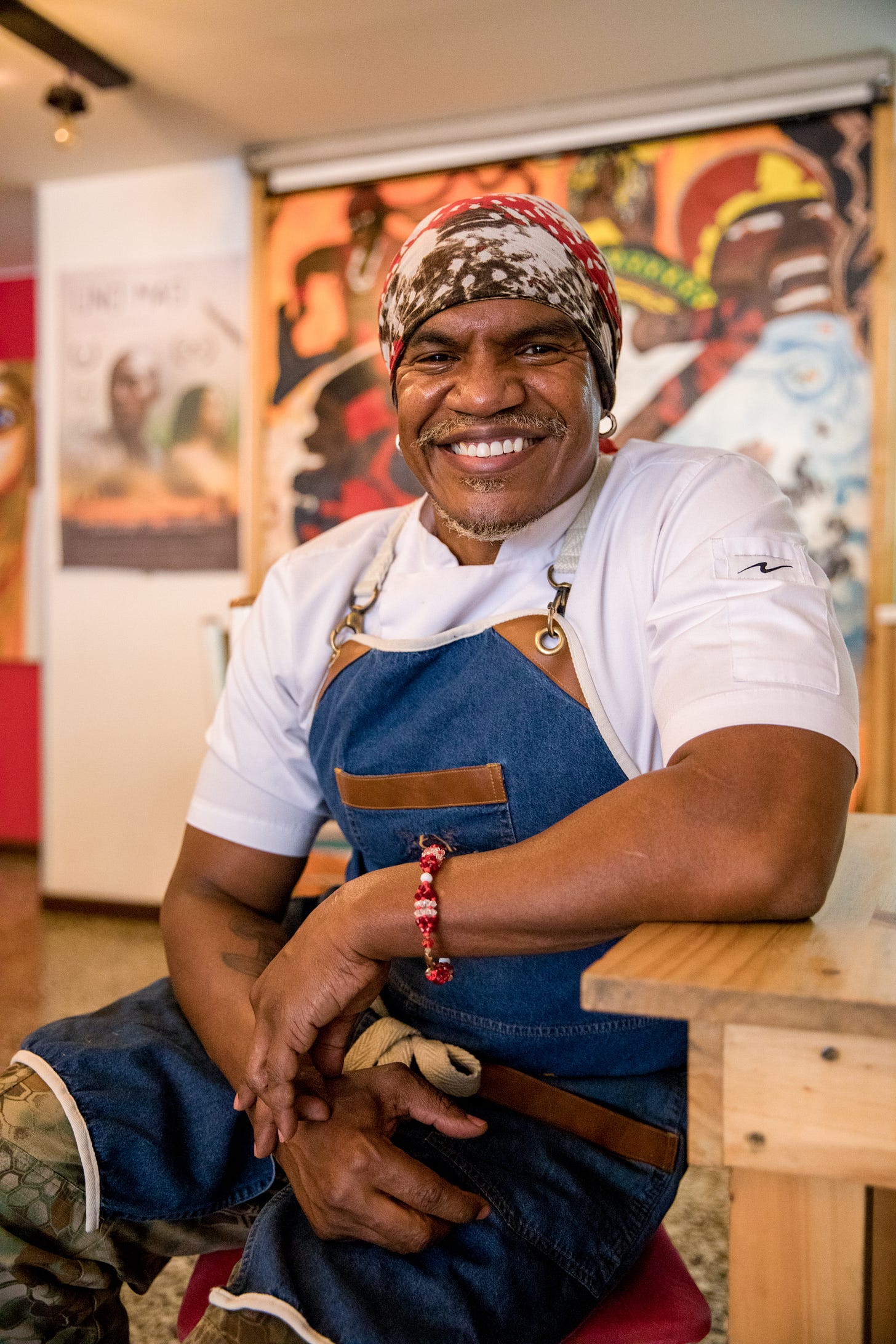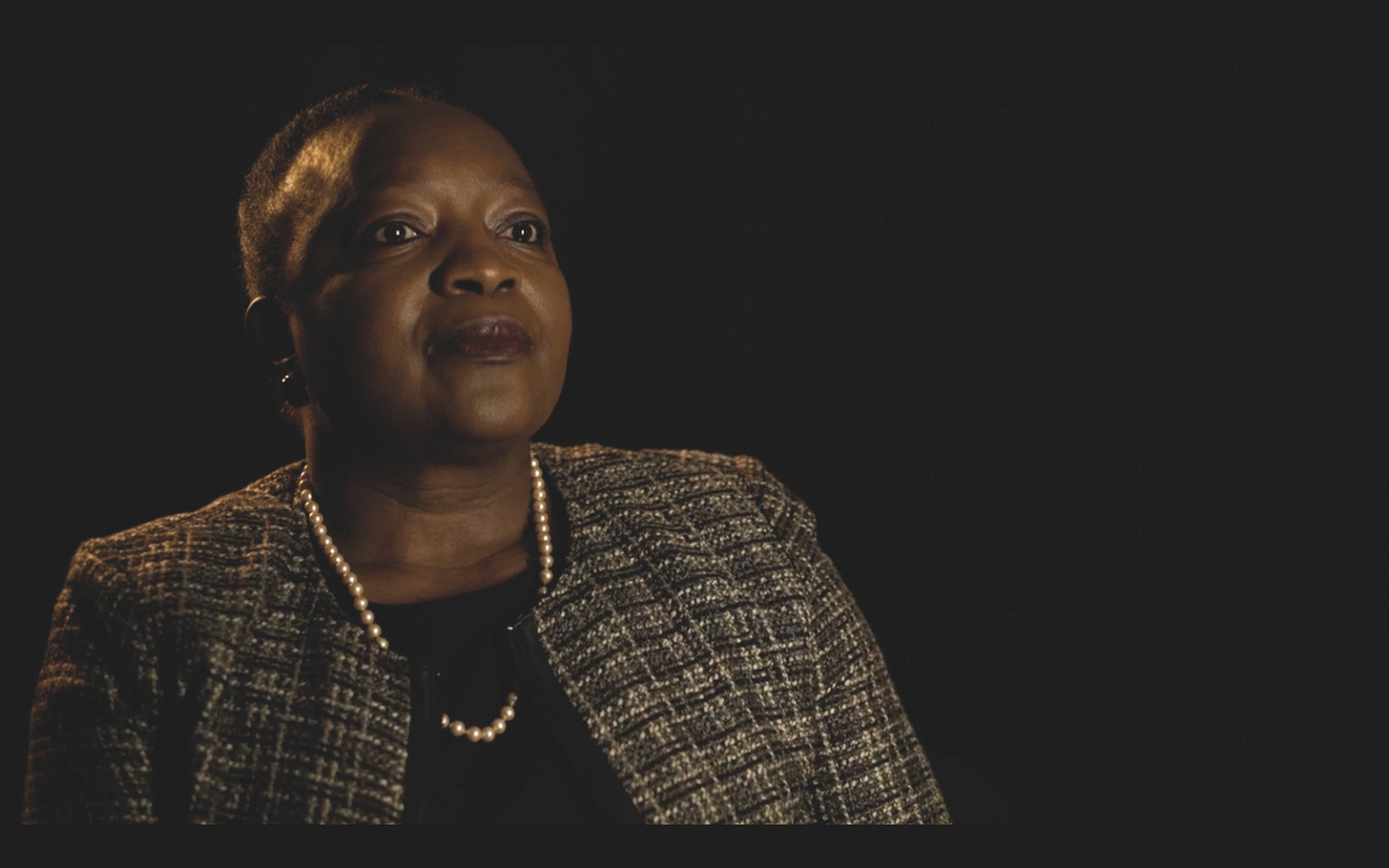Celebrating Black Stories
Narratives from Johannesburg, New Orleans, Haiti and more.
Stranger’s Guide explores how politics, power and culture shape daily life across the globe. We believe that local writers, journalists and thinkers are best equipped to explain their political and cultural realities and we publish stories that ask us to listen to the complexities of the world.
Weekly Long Read is for everyone but it’s made possible by our paid subscribers. Thanks to those who support our work, and if you’re not yet a paid subscriber, today is the perfect day to join!
As Black History Month in the US and Canada comes to a close, we’re taking this opportunity to celebrate Black storytelling around the world.
At the end of each print volume of Stranger’s Guide, we feature “First Person Narratives”—portraits of individuals alongside their own words describing life experiences. In this Weekly Long Read, we’re highlighting Black voices from throughout our guides. Below, find narratives from Johannesburg, New Orleans, Colombia, Lagos and more, each showcasing a different voice and different story.
Please join us in sharing and amplifying Black voices and stories all year long.
Dixon Romeo, Chicago, US
Organizer with We, Not Me
I’m an organizer with We, Not Me, which started in September 2020, and works to provide mutual aid and eviction protection for folks in South Shore. We joined the Community Benefits Agreement Coalition in 2021; it started in 2015, when the Obama Center was announced. The original idea was originally to get a community benefits agreement with the Obama Foundation, the City of Chicago and the University of Chicago, the institution the foundation chose to host what it said at the time would be the presidential library.
We know that regardless of what the Obama Foundation does, regardless of what the center becomes, the fact that there is a new, big thing that is focused on the identity of a former president, who is probably the best-known person in the modern world, is gonna drive tourism and speculative real estate investment. The Obama Foundation does not have the legal authority to enact ordinances and caps on rental applications or to subsidize rent. Since 2010, South Shore’s been the number one eviction neighborhood in Chicago. These issues existed before the Obama Center, but they have been magnified by the speculative force, bringing real estate investors into the market. If you were to go on Zillow, Redfin or other real estate sites right now and look at South Shore Chicago, the description will say, “steps away from the coming Obama Center.” The DePaul University Housing Study, the Lawyers Committee for Better Housing, an eviction filing tracker and our own research have found that one-third of homeowners in the area around the Obama Center are struggling to pay their mortgage and property taxes. In addition, South Shore is 77 percent renters, most paying more than 30 percent of their income in rent.
South Shore Chicago is one of the only cities in terms of population where you have poor people living right next to the lake, in walking distance. So when we talk about equity, in terms of having access to the natural environment, South Shore is a unique neighborhood. But once the Obama Center was announced, we started to see a change. Pierra Harden is a great leader in our coalition. She was living in a building right on the lake, paying $900 for rent. Then the center gets announced, and two years later, they’re trying to charge her $1,400. We need the city to intervene so that working class, poor, middle class, upper middle class, all types of Black people can live next to the Obama Center. We want folks who are on Section Eight to live next to the center and say, Hey, my child can be president one day. There’s something powerful in that, but that only works if we can afford to live there.
…
I’m from South Shore. My family has lived in the neighborhood for generations. My grandmother moved into the South Shore during the Great Migration; she was one of the first Black people to own a home on her block. She got the house in the fifties, paid it off in the eighties. I often joke with folks that when I die, they’re gonna have to bury me on Stony Island.
Raji Sunday James, Lagos, Nigeria
Uber driver and part-time comedian
Traffic is one of the hardest things about living in Lagos. Actually, it’s better for me in traffic because I make more money, but it’s stressful. They call it “go slow.” The kind of terminology we use for things sometimes can be quite funny.
I signed up with Uber last June. I used to work as a private driver, but people can be quite wicked and don’t appreciate what we do for them, so I was paid little or nothing. I felt that signing up for Uber would be better for me because then I get to choose when I want to work. The job is flexible and I’m liking it.
Uber is my main job, but I do other things—I’m a content creator, a comedian. I can be quite funny and make people laugh for a living. I would like to be a full-time comedian. I perform as an emcee at weddings, making fun of the guests. I let people know when it is time for food, and when people are distracted and doing some other stuff, I make fun of them to get them to pay attention. That’s my job.
…
Nigeria is a more amazing country than I’ve ever seen before. I mean, the people are just incredible. I don’t know how they do it, but I’m gonna tell you categorically that we are not people [who] depend on the government. If we Nigerians were lazy, there would be chaos everywhere. We don’t wait for the government in order to survive; we survive in spite of the government
Violette Volcy, Gonaives, Haiti
Fourth grade teacher in Gonaives
It wasn’t my first choice to become a teacher; it happened over time. I had a big brother who used to teach in our school nearby, but he found another job, he couldn’t just leave the classroom and his students in the middle of the year with no one to take over, so he asked me to help. I basically became the full-time substitute in his place.
…
I teach fourth grade and it takes me 30 minutes by moto. The kids are not all the same age, because all kids don’t start school at the same time. Eight (the youngest) to 10. At my previous school, there were kids who were as young as eight and but then as old as 14, 15, all in fourth grade.
Education serves as a foundation, one of the things we can really leave as a legacy. If I were to leave land for my son, or a castle, or a big house, anyone can come and take them. If you don’t deserve it, they can take it. They can take any possessions, but they can’t take knowledge. When he has his own family, he can orient them as well. Because I started the steps forward, he will continue it based on what I was able to give him in terms of education. New innovations are coming, new things are developing. I want him to be part of that.
These kids who are coming up, who are being raised in Haiti, the future—tomorrow—has to be different for them. It will only be different if we invest differently into education, and that’s the way we can really transform what’s going on.
—Stranger’s Guide: The Caribbean
Glen David Andrews, New Orleans, US
Trombonist, vocalist
I spent the first years of my life playing in Jackson Square, and I have been playing professionally since 1988. I have played traditional New Orleans jazz, blues and gospel on five continents.
When you are from the Tremé neighborhood and your grandmothers and your aunts run two of the most successful bar rooms and restaurants and you are surrounded by five funeral homes and nine churches and 15 bar rooms, you don’t want to be a football player or a teacher or a basketball player. You want to be like the Olympia band leader, Harold Dejean. You want to play like Tuba Fats. I’ve been watching banjo and rhythm guitar player Danny Barker since I was literally four years old, bringing the who’s who of American music in my aunts’ and them house and jam the night away. I was able to sit down as a child in 1987, ‘cause I was sick from school, watching my aunt do Fats Domino’s hair. So, I never wanted to be nothing else. I always thought the musicians was cool. Always thought they was successful. I’ve always seen, from a poverty aspect, the musician’s family always lived just a little better than the average person.
As you get older, a suit and a tie don’t fit every occasion. And if you are a band like Rebirth Brass Band, the milkman hats and the black and white outfit, it don’t go. And right now—just to be blatant about it—it is too associated with keeping the Black musician down in the social order with a certain look. My grandmother and them was deep into the Civil Rights from the 1930s, and they was always explaining that a lot of that look was associated with the Black musician staying in his place.
—Stranger’s Guide: New Orleans
Rey Guerrero, Bogotá, Colombia
Chef
In El Nogal, a neighborhood with two expensive shopping malls, chef Rey Guerrero runs his self-named restaurant that sells food from Colombia’s Pacific coast. Inside, there’s a wall covered with photos of Guerrero with various notable people. In one picture, he poses with Peruvian chef Gaston Acurio. In another, he can be spotted with Anthony Bourdain.
I’ve learned to persist. Bogotá is a place that provides opportunities for lots of people, but it is a racist and classist place where people don’t trust each other. As an Afro-Colombian, it can be hard to find opportunities to study here, to get work, to rent allocation. People put obstacles in front of you that you have to jump over constantly until you reach your goal. But when you have proven that you are good at something, when you have persisted, the opportunities show up. For those of us who don’t give up, it is much easier to get up and keep on going. In this city, you can’t give yourself the luxury of throwing in the towel.
—Stranger's Guide: Colombia
Sibongile Mkhabela, Johannesburg, South Africa
June 16 Activist
I am a Sowetan through and through. I have been an activist from a young age, and I still consider myself an activist.
The June 16th student uprising was not an event. It was a movement. We student activists operated in highly organized times. In the 1970s came a political reemergence and revival. I do not think we have ever had a level of activism as powerful as we did in the '70s. The system was terrified of what was possible.
But we started something that we could not get out of. People died. People were imprisoned. What has been difficult is becoming aware of some of the traumas we went through.
You take them as the price you pay. When someone else has paid with their lives, somehow it gives you perspective.
Some years back, my daughter did a play at university about me. When I saw the play for the first time, I saw myself, from her perspective. For the first time, I could see the relationship between what had happened then and how I think and deal with things now. I have a forgetfulness about me. I forget names, I forget faces. I can sit down with you, talk to you, and if I meet you tomorrow, I will have totally forgotten your face. I think that it comes out of years of trying to forget, consciously, of moving away from the memory of my family, and the pain of my situation. It was emotional to watch because what she portrayed is what I deal with all the time.


